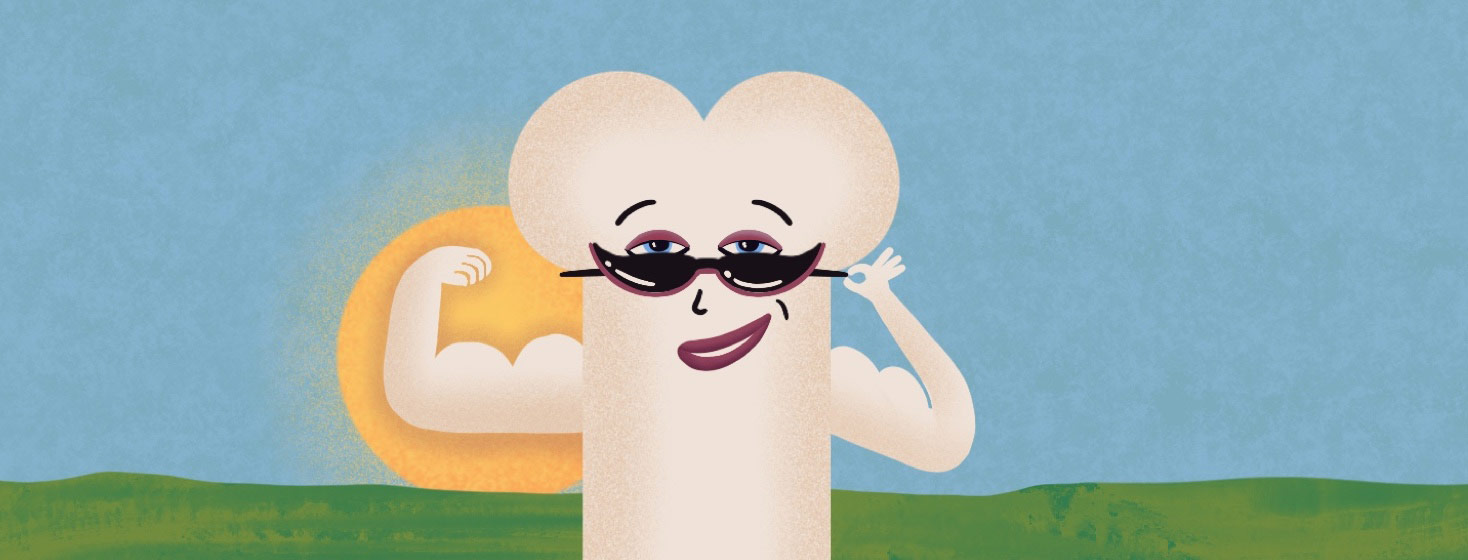How to Improve Bone Health
Bone health is at greater risk for some people, including those living with HIV/AIDS. People living with HIV in Europe and North America tend to have lower bone mineral densities (BMDs) – this refers to the amount of minerals and proteins in the bones. They also have a higher risk of broken bones.1
Doctors are still working to figure out why this is. They have found that other lasting health issues tied to HIV – like altered immune function, hepatitis C, and inflammation – play a part.1
Some things are known about what people can do to improve their bone health – and perhaps prevent future injuries.
The link between HIV and bone loss
Research shows a link between HIV and bone loss. HIV can lessen the amount of tissue inside the bones. This loss often occurs more quickly than the body can create new bone tissue.1-3
Osteopenia and osteoporosis
A few things can happen when the tissue in the bones becomes less compact. Osteopenia occurs when the BMD drops below the norm. This affects how bones move and bear weight, making them more likely to break. Osteoporosis sets in when the loss of bone tissue gets worse, leaving holes in the bones.1-5
With osteoporosis, the bones become frail and may break easily. Fractures in the bones of the hips, spine, and wrists are the main signs of osteoporosis. Pain, weakness, and changes in back structure and height can also be caused by osteoporosis.1-5
What affects bone health?
Many things can affect the health of our bones. The genes we inherit have a big impact. The chance of bone conditions is higher for those who are small in size and have a record of these conditions in their families.1-5
Our actions have effects on our bone health as well. Consuming too much alcohol, caffeine, and sodium and too little calcium and vitamin D can worsen bone health. Not moving enough and using tobacco products can also harm our bones.1-5
Other factors and overall health
Other factors raise the risk of poor bone health. These include age (65 and older), gender (female), and race (white and Asian).
Menopause, which happens when levels of sex hormones like estrogen and testosterone in older adults’ bodies take a dramatic dive, also raises the risk.1-5
Our overall health also plays a role in our bone health. Traumas or hurts that damage our bodies, emotions, or minds take away from the health of our bones.1 Certain diseases – like cancer, connective tissue disease, and hormone disorders – can lead to bone loss, too.4,5
The drugs used to treat some diseases can also affect bone health.1-5 Doctors have linked bone loss to antiretroviral therapy (ART) for HIV treatment. Studies show bone loss of at least 2 percent and as much as 6 percent in the first and second years of ART.1,2
5 ways to keep your bones healthy
You can do things to maintain your bone health. Doctors suggest the actions discussed below for people living with HIV. These actions also help people with other conditions that affect bone health:1-5
1. Change medicines
Some drug treatments can increase bone loss. Antidepressants, methotrexate, radiation, and steroids are among these. You may be able to switch prescriptions and/or add a drug or hormone therapy that enriches bone health.
2. Get enough calcium and vitamin D
You can obtain these nutrients through foods and supplements. Almonds, broccoli, dairy, greens, and oatmeal have lots of calcium. You can find vitamin D in eggs and tuna as well as added to some juices and kinds of milk. Salmon contains both calcium and vitamin D. Spending time in the sun can also help your body make its own vitamin D.
3. Move
Certain movements increase the density and strength of bones. You can choose to climb stairs, dance, lift weights, ride a bike, run, stretch, swim, and walk.
4. Steer clear of falls
Do what you can to not fall. Light up walkways and remove items that could trip you. Wear shoes with good support. Make use of aids such as canes, safety rails, and walkers.
5. Stop certain behaviors
Drinking lots of alcohol, dipping tobacco, and smoking damage a person’s health in many ways. Quitting these habits can protect the health of your bones.
Talk with your doctor
Your doctor can help you assess, enhance, and preserve your bone health. They can order a bone density scan and blood tests to check your calcium and vitamin D levels.
Then they can advise you on which treatments and wellness efforts may help.

Join the conversation